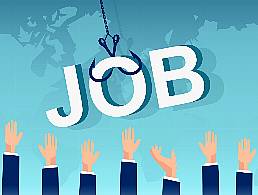Work-life balance is so much more than a buzzword and reducing it to just that is extremely damaging, writes Jenny Darmody.
Last week, I came across a feature focusing on Amazon CEO Jeff Bezos and his opinion of the term ‘work-life balance’. As Siliconrepublic.com’s Careers editor, I was naturally curious, albeit somewhat sceptical.
After all, Amazon’s workplace conditions have been well documented and, according to a recent report from Organise cited in Wired, health and safety complaints from Amazon UK workers rose by more than 200pc after its Prime Day in July.
So, what does the leader of this company have to say about work-life balance? He believes it to be a “debilitating phrase”, which I would find a little funny if it didn’t bother me so much.
First, a little context. Bezos’ words came from a sit-down interview with Mathias Döpfner, the CEO of Business Insider’s parent company, Axel Springer.
Along with a discussion around his journey to build his empire and become one of the richest men in the world, Bezos spoke about his opinions on work-life balance.
He said: “I get asked about work-life balance all the time. And my view is, that’s a debilitating phrase because it implies there’s a strict trade-off. And the reality is, if I am happy at home, I come into the office with tremendous energy. And if I am happy at work, I come home with tremendous energy. It actually is a circle; it’s not a balance.”
In a previous interview with Thrive Global, Bezos said he prefers the word ‘harmony’ to the word ‘balance’ because, again, balance implies a strict trade-off, according to him.
Putting aside the irony that Bezos is the one pontificating about work-life balance or work-life harmony when a huge number of Amazon employees went on strike only a few months ago, there are a few other issues I have with Bezos’ opinion.
The blending of worlds
While Bezos’ thoughts on having a happy home life meaning a happy work life and vice versa, work-life ‘harmony’, as he likes to call it, is not that simple.
Studies have shown that even those who love their job, feel fulfilled and go in energised every day can suffer from burnout, overwork and workaholism.
Having spoken to experts, thought leaders and psychologists over the past few years, I know there are vital reasons that mean everyone needs to switch off from work.
Just recently, I spoke about the dangers of overworking and why we all need to be mindful of the effects of not switching off. After all, overworking is not simply about hours logged in the office. It can also be about how much you think about work and how much your work life bleeds into your home life.
Does that sound like harmony to you?
Despite what Bezos may think, there does need to be a certain level of ‘a strict trade-off’ when it comes to work and home life.
I’m sure Bezos only means to say that he believes one side of your life can affect the other, so you can never truly have a Chinese wall between the two. However, in today’s hyper-productive society, the idea that you shouldn’t even attempt to build that wall is not only oversimplified, it’s damaging.
Don’t reduce work-life balance to a buzzword
I don’t agree with diminishing the term ‘work-life balance’. Writing about the importance of work-life balance is one of the most important parts of my job and, even if he doesn’t mean to do this, Bezos’ words serve only to delegitimise the term and reduce it to nothing more than a buzzword.
Even reading the comments underneath this particular feature showed me that Bezos is fuelling the idea that work-life balance is already just a buzzword that people need to ‘stop going on about’.
The problem is that we as a society are still suffering from the toxicity of the word ‘productivity’. We have a generation that is cortisol-driven and dopamine-starved, which leads to intense stress, anxiety and burnout.
It’s hard enough to make real change when it comes to societal problems such as overworking and burnout without having to fight against the idea that necessary change is considered ‘a buzzword that you keep going on about’.
But there’s a reason we keep going on about it. Recent research from CoreHR shows that more than 40pc of employees say work negatively impacts their personal lives, and they worry about the effect it has on their mental health.
CoreHR CEO Dean Forbes said that the ‘always on’ culture can have big consequences for hard workers who might be teetering on the edge of becoming a workaholic.
‘Instead of giving other leaders a bandwagon to jump on about how the term “work-life balance” is silly, Bezos should be giving employers serious food for thought on how to ensure their employees are happy at work’
Rather than getting pernickety about whether or not he believes a particular word is the right one, Bezos should be using his platform to drive actual change within the space of work-life balance. This shouldn’t come in the form of changing the term, it should come in the form of changing the reason we need it in the first place.
Instead of giving other leaders a bandwagon to jump on about how the term ‘work-life balance’ is silly, Bezos should be giving employers serious food for thought on how to ensure their employees are happy at work by allowing them to have that strict trade-off when necessary.
Speaking about CoreHR’s research further, Forbes echoed my thoughts on why blurring the line between work and home life can be dangerous.
“Whilst hard workers are driven by passion for what they do, for workaholics, that need stems from addiction.”
What was that you said about harmony, Bezos?
Jeff Bezos at the Amazon Spheres grand opening in Seattle, January 2018. Image: Seattle City Council/Flickr (CC BY 2.0)




